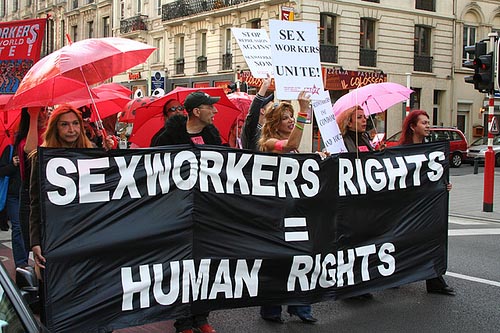PARIS – The question of what should be done about prostitution is as old as the profession itself, but the issue is now front and center again, as a leading human rights group proposes decriminalization, while some countries push toward harsher penalties for those who pay for sex.
In England, France and Ireland, lawmakers are considering new measures — and in the cases of Northern Ireland and Canada, are enforcing new laws — that decriminalize prostitution but impose penalties on clients, using a model adopted in Sweden in 1999.
But the effort to crack down on a largely male clientele while sheltering a mostly female workforce is taking place just as the human rights group Amnesty International is weighing a new course: decriminalizing all sex work, both for buyers and sellers.
At an international conference next week in Dublin, some 500 Amnesty delegates from more than 80 countries will vote on whether to advocate the elimination of all penalties for sex work, on the grounds that it is a matter of privacy between consenting adults.
The proposal has been denounced by women’s groups like the New York-based Coalition Against Trafficking in Women, and by celebrities like Meryl Streep, Kate Winslet and Gloria Steinem.
“Prostitution has always been considered a domestic matter and now Amnesty could elevate it to a point of international human rights law,” said Francis A. Boyle, a professor of international law at the University of Illinois and a former Amnesty board member in the United States. He called that development “significant.”
“But why is the resolution so broad?” he asked. “Everything should be organized around that basic principle of protecting the women and girls. We should be protecting human beings, and not sex work.”
For many countries, the notion of penalizing customers is tempting. Since Sweden passed its pioneering law 16 years ago focusing on buyers, street prostitution in major Swedish cities has declined, dropping by more than half since 1995. The number of men who said they purchased sex fell, as well, by more than 40 percent in that time period, according to a report this year by a Swedish government agency.
But Amnesty International, formed in 1961 to bring attention to political prisoners, argues that sexual desire is a fundamental need and that punishing buyers “may amount to a violation of the right to privacy and undermine the rights to free expression and health.”
Keep Reading







